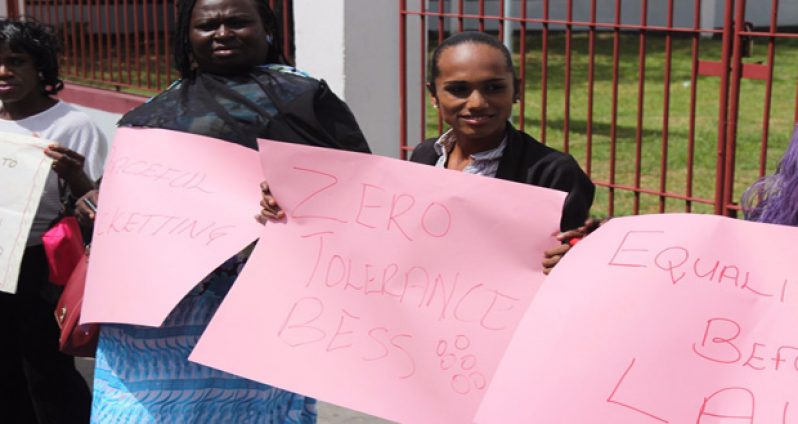– Guyana Bar Association
PRESIDENT of the Guyana Bar Association (GBA), Attorney-at-Law Christopher Ram said that the courts and everyone in the court system has a duty to upkeep and protect the rights and privileges of the citizens of Guyana. Alluding to a speech made by the United Nations Secretary-General, Ban Ki-moon, Ram said that there is no need for special laws, but there is need to recognise existing laws and remove any doubts of the rights afforded citizens in the Constitution, any legislation and judicial rulings.
“Protecting LGBT people from violence and discrimination does not require the creation of a new set of LGBT-specific rights, it is the legal obligation of states to safeguard the human rights of LGBT people as guided by international law, specifically on the basis of the Universal Declaration of Human Rights which Guyana ratified and included in several constitutional commissions and legislation,” Ram said.
Ram recounted previous legislative attempts, which he described as historical, but after outcries from some religious groups, the term “sexual orientation” was put in a separate Bill and not put to a vote in parliament.
This, according to Ram, violates the duties of the Constitution – such duties would be to safeguard citizens’ fundamental rights and freedoms, including access to justice. He reminded the gathering that Guyana is a secular state and that religious influence on policy-making is inappropriate.
As such, he called for lawyers to be more vocal and present more cases to the courts to protect the rights of LGBT Guyanese and other marginalised groups.
The President of the Bar Association expressed these sentiments during a forum held recently to commemorate International Transgender Day of Visibility 2016.
It was also organised by Guyana Trans United (GTU) and the Society Against Sexual Orientation Discrimination (SASOD) in collaboration with the USAID Advancing Partners and Communities (APC) Project to discuss the recent case in which a male-to-female transgender person, “Twinkle,” was barred from attending matters in court by Magistrate Dylon Bess for cross-dressing, presenting herself in female attire.
Karen De Souza of Red Thread, in making her contribution, said the law should be just and should be applied equally to everyone, positing that it should not discriminate against anyone regardless of who they are. She opined that the magistrate presented gender and class biases in “Twinkle’s” case, alleging that the High Court’s judgment is problematic and has deliberately been made so.
“Ian Chang deliberately and mischievously left ‘improper purpose’ undefined and that is what Magistrate Bess is using for his own biased reasoning.” According to De Souza’s account, Bess said for him to accept “Twinkle” in female attire he would bring the court into disrepute. “This is nonsense. These regulations and laws or what not need to be changed. There is a focus on form but there is nothing behind it. Rather than exploring the purpose behind it, more people are just enforcing it for no apparent reason – The ministries and public offices have regulations outside the gates against women wearing sleeveless . The First Lady wears nothing but sleeveless. Would they bar her from entering?” De Souza pointed out.
“Be more dramatic,” she charged with a smile when stating that social change and progress in society comes with a louder voice from the people and progressive action such as picketing and lobbying.
Political and Economic Affairs Chief of the United States Embassy in Georgetown, D. James Bjorkman, said that there is no issue with dressing in female attire. He mentioned that comment the Prosecutor made that “Twinkle” would have been arrested in the United States if she presented herself in a Court of Law in female attire is “absolutely false.” In the federal law, he expressed, President Obama has stated that discrimination of any kind is unacceptable.
Bjorkman said that this is not a fight for special rights. “The community is not asking to be looked at as special, but to be included, to be made an equal part of society and not to be discriminated against by something as arbitrary as how one is dressed or how they appear,” Bjorkman added.



.jpg)









